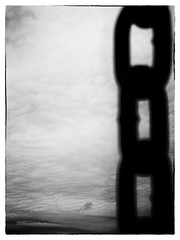[private]
Mai An Hoa
Language is the custodian of history. It tells what was as well as what is. For those who seek to understand it, language unseals the past and connects it to the present. Language is public. Thought is private.
The term ‘private’ comes from the Latin privus, meaning ‘belonging to one’s self’ as opposed to publicus, ‘open to the people.’ Nothing is more private than thought. We can look at this face—a face out in public, a face open to the people—but we cannot know what thoughts pass behind those eyes. We can never know those thoughts, not for certain. Even if this person expresses those thoughts, we have no way of knowing with any certainty the language used truly represents the thoughts. It is impossible to violate the privacy of thought—impossible to deprive a person of their thoughts, to make those thoughts public, open to the people.
We can only look on this face, hoping to somehow decipher what we see and in doing so, to become privy to this person’s thoughts. Language may be the custodian of history, but thought cannot be kept in custody. In the privacy of one’s thoughts there is always freedom.
Blog photograph copyrighted to the photographer and used with permission by utata.org. All photographs used on utata.org are stored on flickr.com and are obtained via the flickr API. Text is copyrighted to the author, greg fallis and is used with permission by utata.org. Please see Show and Share Your Work








